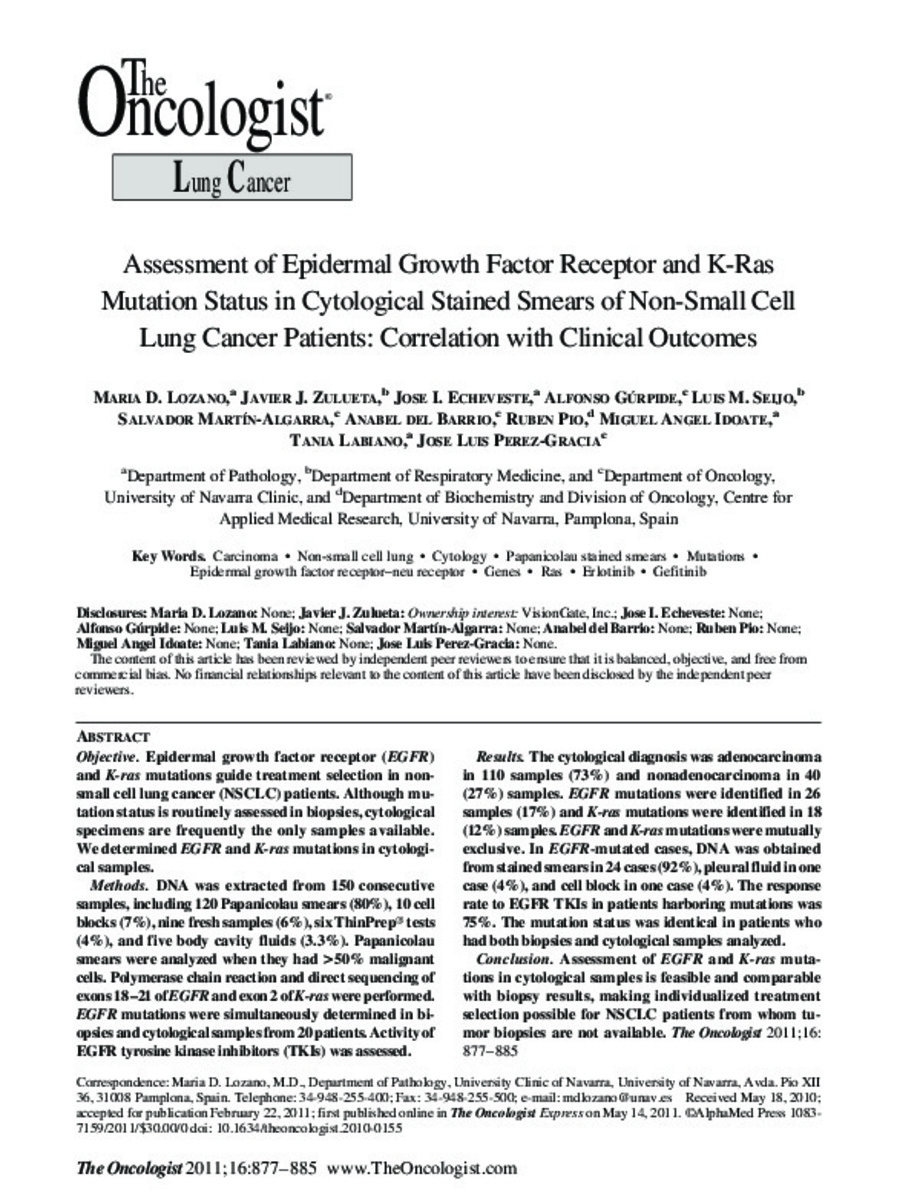Assessment of Epidermal Growth Factor Receptor and K-Ras Mutation Status in Cytological Stained Smears of Non-Small Cell Lung Cancer Patients: Correlation with Clinical Outcomes
Keywords:
Adenocarcinoma/drug therapy/genetics
Antineoplastic Agents/therapeutic use
Carcinoma, Non-Small-Cell Lung/drug therapy/genetics
Publisher:
AlphaMed Press
Citation:
Lozano MD, Zulueta JJ, Echeveste JI, Gurpide A, Seijo LM, Martin-Algarra S, et al. Assessment of epidermal growth factor receptor and K-ras mutation status in cytological stained smears of non-small cell lung cancer patients: correlation with clinical outcomes. Oncologist 2011;16(6):877-885.
Statistics and impact
0 citas en

0 citas en

Items in Dadun are protected by copyright, with all rights reserved, unless otherwise indicated.










